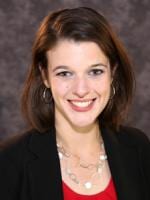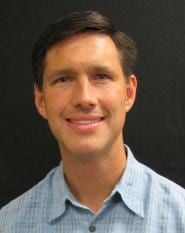Faculty
 Carmen P. DiGiovine’s research focus is on the application of science and technology to improve the quality of life of individuals with disabilities. His most recent research activities include investigating the role of nutrition and wheelchair seating systems on the development of pressure ulcers, the effect of wheelchair rugby on the overall health of the shoulder, and the assessment of the assistive technology service delivery process through the use of outcome measures. Dr. DiGiovine is also interested in program development of assistive technology service delivery programs and the role of rehabilitation engineering in the field of assistive technology.
Carmen P. DiGiovine’s research focus is on the application of science and technology to improve the quality of life of individuals with disabilities. His most recent research activities include investigating the role of nutrition and wheelchair seating systems on the development of pressure ulcers, the effect of wheelchair rugby on the overall health of the shoulder, and the assessment of the assistive technology service delivery process through the use of outcome measures. Dr. DiGiovine is also interested in program development of assistive technology service delivery programs and the role of rehabilitation engineering in the field of assistive technology.
I am an occupational therapist and the rehabilitation clinical manager at OSU Wexner Medical Center and am a certified Assistive Technology Professional. I am responsible for the Assistive Technology Center and am a clinical instructor in OSU’s School of Health and Rehabilitation Sciences.
Allison is an Associate Professor in the Department of Speech and Hearing Science at The Ohio State University. She received her B.A. from Iona College and her M.S. from New York Medical College in Speech-Language Pathology. During her clinical fellowship year at Westchester Institute for Human Development, Allison participated in the Leadership in Education and Neurodevelopmental Disabilities (LEND) training program. She completed her Ph.D. in Communication Sciences and Disorders at the University of Iowa in 2010, followed by a year of postdoctoral training at the University of Wisconsin-Madison. In 2017 Allison received The Ohio State University Alumni Award for Distinguished Teaching and The Ohio State University Distinguished Undergraduate Mentor Award. Allison’s research focuses on identifying the active ingredients of successful augmentative and alternative communication (AAC) use for beginning communicators and language development in individuals with autism spectrum disorders. She has presented her work at national and international conferences
Tanya Nocera, PhD earned a BS in Physics from Allegheny College and a MS and PhD in Biomedical Engineering (BME) from The Ohio State University (OSU), before joining the OSU BME Department as an Assistant Professor of Practice in 2014. Her roles include designing and teaching undergraduate BME laboratory courses and mentoring multidisciplinary senior capstone teams on rehabilitation engineering and medical device design projects. She is also the faculty advisor for the Medical Innovation Club, and is pursuing scholarship in student technical communication skills and preparing BME students for careers in industry.
Julie Faieta is a licensed occupational therapist and received her Ph.D. from Ohio State’s Health and Rehabilitation Sciences Program. Julie’s primary area of research is in the development and evaluation of assistive and pervasive technology-based interventions to address the health span and quality of life in neurodegenerative population and their caregivers, with a specific interest in Alzheimer’s disease and sleep focused interventions. Julie is interested in developing intervention protocols that can be effectively implemented to those at risk of disease development and at each stage of the disease progression.
Amy Miller Sonntag is a speech-language pathologist who has devoted her career to working with people with complex communication needs who require the use of augmentative and alternative communication (AAC). Her clinical focus is to provide people with AAC solutions that allow them to participate as completely and independently as possible in all aspects of their life. Dr. Sonntag is a clinical professor and educator in the Department of Speech and Hearing Science and co-director of the Language, Assistive Technology, and Autism (LATA) Lab. Her research activities include effective and functional outcome measures for consumers of AAC, vocabulary included on AAC systems, and determining evidence-based AAC strategies for people with significant physical, cognitive, and/or visual disabilities.
_____________________________________________________________________________
Students
Kaetlyn Culter is a first-year graduate student at Ohio State within the Doctor of Occupational Therapy program. She is originally from Cincinnati, Ohio, and graduated with a Bachelor’s degree in Health Sciences with a minor in Speech and Hearing Science from Ohio State. Kaetlyn is additionally part of the Smart Columbus Study, where she works with those who have cognitive disabilities. Her interests include assistive technology devices that allow individuals to practice their autonomy and spending time volunteering with Alzheimer’s and Dementia patients at local nursing homes. She plans to attend graduate school to study Occupational Therapy after her undergraduate career.
Ashley Stojkov is a third-year undergraduate majoring in Health Sciences with minors in Biology and Substance Misuse and Addiction. Additionally, Ashley is a part of the Smart Columbus study where she works with individuals with cognitive disabilities. After earning her undergraduate degree, Ashley plans to attend medical school and work in a setting that can incorporate technology as a tool to improve the lives of her patients.
Sarah is a duel-degree student and first-year PhD student in the School of Health and Rehabilitation Sciences at The Ohio State University, where she recently graduated with her doctorate in occupational therapy. Previously, Sarah earned her bachelor’s degree in Fine Art (Visual Studio Art) from Carnegie Mellon University in Pittsburgh, PA. Sarah’s research is in new and emerging interactive media and technology with a focus on games for health, rehabilitation technology, and virtual reality and simulation. Her primary area of interest is currently the use of virtual reality as a platform for the cognitive assessment and rehabilitation of individuals with brain injuries. Sarah is also the chair of the Games for Health Journal Student Committee, which connects students interested in games for health and virtual technologies to research collaboration and mentorship experiences. Through rigorous scientific research, advocacy, collaboration, and dissemination, Sarah hopes to expand the potential for emerging interactive technologies within the field of rehabilitation science, and ultimately improve health-related outcomes for all individuals.
Liz Mance is a first-year Doctor of Occupational Therapy graduate student at The Ohio State University originally from Cleveland, Ohio. She is graduated with a Bachelor’s degree in Health Sciences with a minor in psychology. Liz is a member of the lab team for the Smart Columbus Study, where she works with those who have cognitive impairments. Her other interests include volunteering and working in research regarding cerebral palsy at a nearby children’s hospital.
Jack is interested in research focusing on assistive technology and lower extremity pathology. His additional interests include sports medicine, looking at the impact of biomechanics on injury prevention and performance. Through the RST Lab, Jack hopes to gain experience that will aid him in his future career in orthopedics.
Genevieve Thanh is a third-year undergraduate student at The Ohio State University and originally is from Washington, D.C. She is a part of the BS/MS dual degree program in Biomedical Engineering and will be graduating in the spring of 2021. Through the RST lab, she hopes to gain hands-on experience in device development and work in research that aligns biomedical engineering with helping individuals with different abilities.
spring of 2021. Through the RST lab, she hopes to gain hands-on experience in device development and work in research that aligns biomedical engineering with helping individuals with different abilities.
Noah Kaplan is a senior in Mechanical Engineering graduating in May 2020. A  member of the research group since September of 2018, Noah has seen he SmartHub through many phases. Beginning with the device casing design and now pursuing an Undergraduate Research Thesis with the group.
member of the research group since September of 2018, Noah has seen he SmartHub through many phases. Beginning with the device casing design and now pursuing an Undergraduate Research Thesis with the group.
Bethany Frick graduated from Missouri State University in 2017 with a B.S. in Communication Sciences and Disorders and a B.S. in Spanish. She is now pursuing a Masters in Speech-Language Pathology and a Ph.D. in Speech and Hearing Science at Ohio State University. She is a trainee in the Leadership Education in Neurodevelopmental Disabilities (LEND) program at the Ohio State University Medical Center. Her research interests include Augmentative and Alternative Communication, Assistive Technology, autism spectrum disorders, language development, and multicultural aspects of communication. She is recently defended her thesis exploring dialect and language as a barrier to AAC use of multilingual and multidialectal users of AAC.












